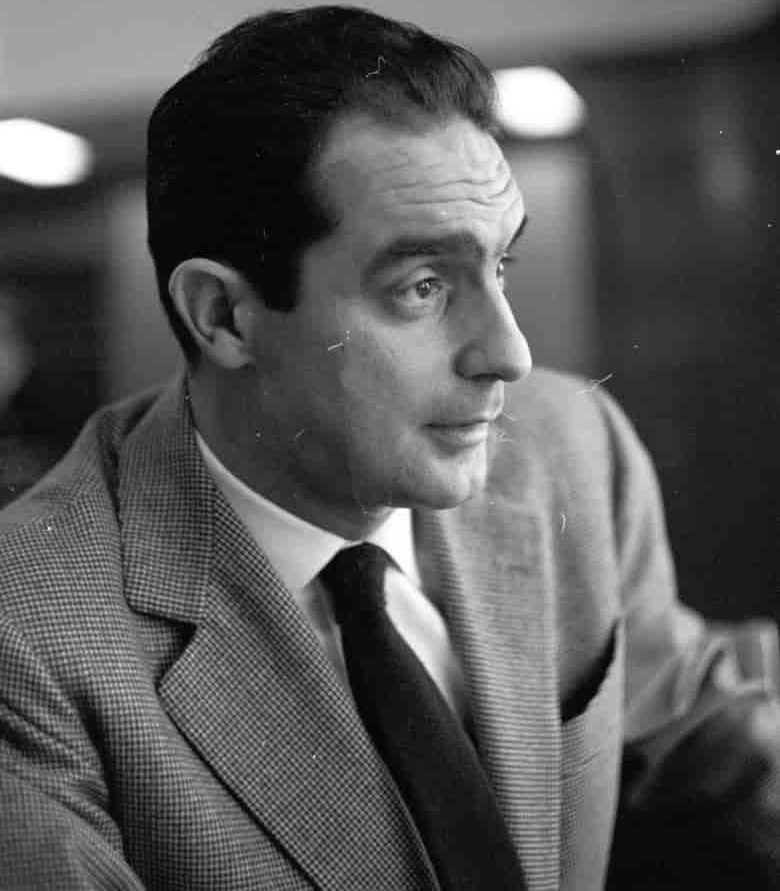The most experimental book of the 70s: ‘If on a Winter’s Night a Traveller’ by Italo Calvino review
“You go into a bookshop and buy If on a Winter’s Night a Traveller by Italo Calvino. You like it. But there is a printer’s error in your copy. You take it back to the shop and get a replacement. But the replacement seems to be a totally different story. You try to track down the original book you were reading but end up with a different narrative again. This remarkable novel leads you through many different books including a detective adventure, a romance, a satire, an erotic story, a diary, and a quest. But the hero of them all is you, the reader.”
When this blurb was read out at my monthly book club, I couldn’t wait to get started. Written by Italo Calvino, the most translated contemporary Italian writer at the time of his death, this book turned out to be expertly crafted, covering multiple genres, and exploring the complex interaction between reality and imagination.
Published in 1979, this book was considered to be part of the postmodernist genre which emphasises fragmentation, metafiction, and intertextuality. Being partially written in the second-person narrative, it tells the story of the Reader (or, “You”) attempting to read an array of unfinished novels. Each chapter is split into two sections: the first part describes “You” trying to read the book and the second is a transcription of whatever book “You” are reading.
It’s almost hypnotic how this whole book is structured – each story introduces you to a new world and new characters, but you never find out how any of these stories end. It was so frustrating but very clever.
Published alongside the likes of Sophie’s Choice, by William Styron, and The Dead Zone, by Stephen King in 1979, Italo Calvino’s If on a Winter’s Night a Traveller can most definitely be described as one of the strangest and most experimental books of its time.
For me, the structure of this book was very difficult to get used to. Having never read anything like it before, I found this book very unconventional and totally bizarre, but I kind of liked it. It was almost as though Italo Calvino had started writing a story, built up the tension a bit, and then abandoned it just before he could think up of a resolution – and he does this ten times! He toys with his readers quite a bit, not letting them finish any of the stories he starts. It was very difficult to wrap my head around at points and I was a bit lost for the majority of the book, but I think this was his intention.
Being a rather small book, I was particularly impressed by how many genres he managed to fit in. The first story is set in a railway station and follows a man with a mysterious piece of luggage. However, the story abruptly ends when “You” discover a printer’s mistake in your copy. The second story is set on a farm, but for every printed page are two blank ones, so “You” decide to return it. Another story is about a man who erases everything on the planet starting with women, then men, then everything else until he is the last person left, but “You” find a problem with this one too. It’s almost hypnotic how this whole book is structured – each story introduces you to a new world and new characters, but you never find out how any of these stories end. It was so frustrating but very clever.
I will warn you however, that some of the stories are far more enjoyable than others. Some are very thrilling, and I felt genuine anger over not finding out the resolutions to these ones. However, others proved to be rather slow, and it was hard to grasp what was actually happening. Therefore, I didn’t feel as angry when they ended abruptly; I was more relieved that I could move on to the next one.
For its time, If on a Winter’s Night a Traveller was a daring move by Italo Calvino. Being a book about books, it addresses many overlooked topics such as issues of translation, how books are produced, and the complexities of language. However, for those of you who may not be fully aware of how unique this book is, I would say that it is a very philosophical kind of read – some of the concepts and literary techniques are quite difficult to understand and every time I picked up the book to continue reading, I had to quickly remind myself about what had happened as it was quite difficult to keep track of it all.
Despite my criticism and the fact that this book was written over 40 years ago, it definitely remains to be one of the most popular books of all time. In 2009, The Telegraph ranked it 69th in a list of ‘100 novels everyone should read’ describing it as a “playful postmodernist puzzle.” Italo Calvino has been described as “the greatest Italian writer of the twentieth century” by The Telegraph and he published many ground-breaking novels throughout the 70s until his death in 1985. He will most certainly continue to be one of the most celebrated writers of not just the 70s, but of all time.
3/5

Comments (1)
I’ve read this book too and I agree with everything you’ve touched upon: confusing, intriguing, and pretty bonkers! Loved reading your take on it 🙂